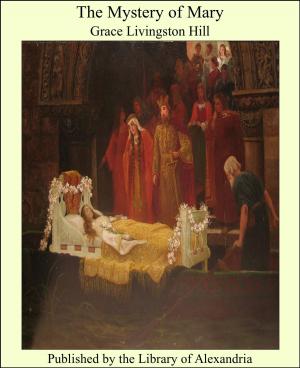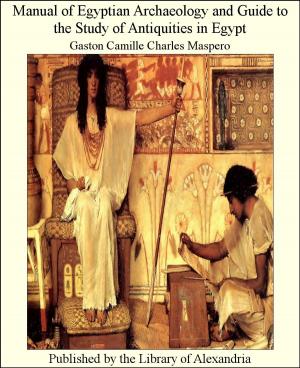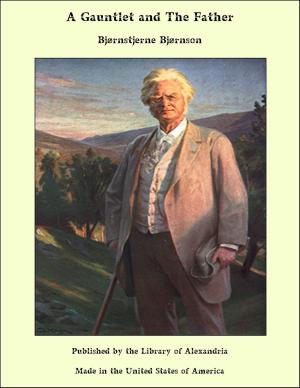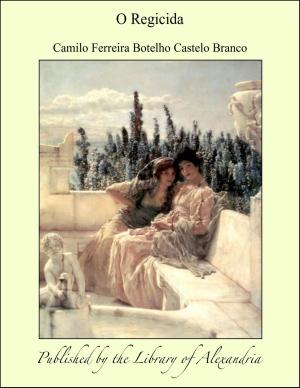The Glory That Was Greece: A Survey of Hellenic Culture and Civilization
Nonfiction, Religion & Spirituality, New Age, History, Fiction & Literature| Author: | John Clarke Stobart | ISBN: | 9781465628015 |
| Publisher: | Library of Alexandria | Publication: | March 8, 2015 |
| Imprint: | Language: | English |
| Author: | John Clarke Stobart |
| ISBN: | 9781465628015 |
| Publisher: | Library of Alexandria |
| Publication: | March 8, 2015 |
| Imprint: | |
| Language: | English |
GREECE” and “Greek” mean different things to different people. To the man in the street, if he exists, they stand for something proverbially remote and obscure, as dead as Queen Anne, as heavy as the British Museum. To the average finished product of Higher Education in England they recall those dog-eared text-books and grammars which he put away with much relief when he left school; they waft back to him the strangely close atmosphere of the classical form-room. The historian, of course, will inform us that all Western civilisation has Greece for its mother and nurse, and that unless we know something about her our knowledge of the past must be built upon sand. That is true: only nobody cares very much what historians say, for they deal with the past, and the past is dead and disgusting. To some cultured folk who have read Swinburne (but not Plato) the notion of the Greeks presents a world of happy pagans, children of nature, without any tiresome ideas of morality or self-control, sometimes making pretty poems and statues, but generally basking in the sun without much on. There are also countless earnest students of the Bible who remember what St. Paul said about those Greeks who thought the Cross foolishness and those Athenians who were always wanting to hear something new. St. Paul forgot that “the Cross” was a typical Stoic paradox. Then there are a vast number of people who do not distinguish between “Greek” and “classical.” By “classics” they understand certain tyrannous conventions and stilted affectations against which every free-minded soul longs to rebel. They distinguish the classical element in Milton and Keats as responsible for all that is dull and far-fetched and unnatural. Classicism repels many people of excellent taste, and Greek art is apt to fall under the same condemnation. It is only in the last generation that scholars have been able to distinguish between the true Greek and the false mist of classicism which surrounds it. Till then everybody had to look at the Greeks through Roman and Renaissance spectacles, confounding Pallas with Minerva and thinking of Greek art as represented by the Apollo Belvedere and the Laocoön. We are now able, thanks to the labours of scholars and archæologists, to see the Greeks as they were, perfectly direct, simple, natural, and reasonable, quite as antagonistic to classicism as Manet and Debussy themselves. Lastly, there are a few elderly people who have survived the atmosphere of “the classics,” and yet cherish the idea of Greece as something almost holy in its tremendous power of inspiration. These are the people who are actually pleased when a fragment of Menander is unearthed in an Egyptian rubbish-heap, or a fisherman fishing for sponges off Cape Matapan finds entangled in his net three-quarters of a bronze idol. And they are not all schoolmasters either. Some of them spend their time and money in digging the soil of Greece under a blazing Mediterranean sun. Some of them haunt the auction-rooms and run up a fragment of pottery, or a marble head without a nose, to figures that seem quite absurd when you look at the shabby clothes of the bidders. They talk of Greece as if it were in the same latitude as Heaven, not Naples. The strange thing about them is that though they evidently feel the love of old Greece burning like a flame in their hearts, they find their ideas on the subject quite incommunicable. Let us hope they end their days peacefully in retreats with classical façades, like the Bethlehem Hospital.
GREECE” and “Greek” mean different things to different people. To the man in the street, if he exists, they stand for something proverbially remote and obscure, as dead as Queen Anne, as heavy as the British Museum. To the average finished product of Higher Education in England they recall those dog-eared text-books and grammars which he put away with much relief when he left school; they waft back to him the strangely close atmosphere of the classical form-room. The historian, of course, will inform us that all Western civilisation has Greece for its mother and nurse, and that unless we know something about her our knowledge of the past must be built upon sand. That is true: only nobody cares very much what historians say, for they deal with the past, and the past is dead and disgusting. To some cultured folk who have read Swinburne (but not Plato) the notion of the Greeks presents a world of happy pagans, children of nature, without any tiresome ideas of morality or self-control, sometimes making pretty poems and statues, but generally basking in the sun without much on. There are also countless earnest students of the Bible who remember what St. Paul said about those Greeks who thought the Cross foolishness and those Athenians who were always wanting to hear something new. St. Paul forgot that “the Cross” was a typical Stoic paradox. Then there are a vast number of people who do not distinguish between “Greek” and “classical.” By “classics” they understand certain tyrannous conventions and stilted affectations against which every free-minded soul longs to rebel. They distinguish the classical element in Milton and Keats as responsible for all that is dull and far-fetched and unnatural. Classicism repels many people of excellent taste, and Greek art is apt to fall under the same condemnation. It is only in the last generation that scholars have been able to distinguish between the true Greek and the false mist of classicism which surrounds it. Till then everybody had to look at the Greeks through Roman and Renaissance spectacles, confounding Pallas with Minerva and thinking of Greek art as represented by the Apollo Belvedere and the Laocoön. We are now able, thanks to the labours of scholars and archæologists, to see the Greeks as they were, perfectly direct, simple, natural, and reasonable, quite as antagonistic to classicism as Manet and Debussy themselves. Lastly, there are a few elderly people who have survived the atmosphere of “the classics,” and yet cherish the idea of Greece as something almost holy in its tremendous power of inspiration. These are the people who are actually pleased when a fragment of Menander is unearthed in an Egyptian rubbish-heap, or a fisherman fishing for sponges off Cape Matapan finds entangled in his net three-quarters of a bronze idol. And they are not all schoolmasters either. Some of them spend their time and money in digging the soil of Greece under a blazing Mediterranean sun. Some of them haunt the auction-rooms and run up a fragment of pottery, or a marble head without a nose, to figures that seem quite absurd when you look at the shabby clothes of the bidders. They talk of Greece as if it were in the same latitude as Heaven, not Naples. The strange thing about them is that though they evidently feel the love of old Greece burning like a flame in their hearts, they find their ideas on the subject quite incommunicable. Let us hope they end their days peacefully in retreats with classical façades, like the Bethlehem Hospital.















